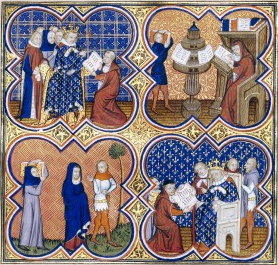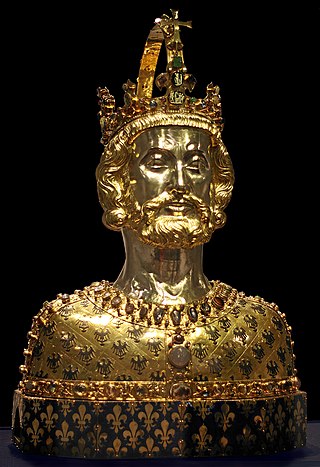This is a bibliography of works by Max Frisch .
Note: Titles appearing in brackets have not been translated into English so their names are literal translations of the original German titles.
This is a bibliography of works by Max Frisch .
Note: Titles appearing in brackets have not been translated into English so their names are literal translations of the original German titles.
| English title | Original German title | Translations | Notes |
|---|---|---|---|
| [Jürg Reinhart] | Jürg Reinhart Eine sommerliche Schicksalsfahrt (1934) | - | |
| An Answer from the Silence: A Story from the Mountains | Antwort aus der Stille (1937) | by Mike Mitchell (2011) | |
| [I Adore What Burns Me, or Difficult Persons] | J'adore ce qui me brûle, oder Die Schwierigen (1944) | - | |
| I'm Not Stiller | Stiller (1954) | By Michael Bullock (1958) | |
| Homo Faber | Homo Faber (1957) | By Michael Bullock (1959) | |
| Gantenbein | Mein Name sei Gantenbein (1964) | By Michael Bullock (1965) | Also published as A Wilderness of Mirrors |
| Wilhelm Tell: a School Text | Wilhelm Tell für die Schule (1971) | By Lore Segal and Paul Stern (1989) | Published in Max Frisch: Novels Plays Essays and in a 1978 issue of Fiction Magazine |
| Montauk | Montauk (1975) | By Geoffrey Skelton (1978) | |
| Man in the Holocene | Der Mensch erscheint im Holozän (1979) | By Geoffrey Skelton (1980) | |
| Bluebeard | Blaubart (1982) | By Geoffrey Skelton (1983) |
| English title | Original German title | Translations / Publications |
|---|---|---|
| Now They Are Singing Again | Nun singen sie wieder (1945) | By Alice Carey in Max Frisch: Novels Plays Essays (1989); By Michael Bullock in Three Plays (2002) |
| Santa Cruz | Santa Cruz (1947) | By Michael Bullock in Three Plays (2002) |
| The Great Wall of China | Die Chinesische Mauer (1947) | By James L. Rosenberg (1961); By Michael Bullock in Four Plays (1969) |
| When the War Was Over | Als der Krieg zu Ende war (1949) | By James L. Rosenberg in Three Plays (1967) |
| Count Oederland | Graf Öderland (1951) | By Michael Bullock in Three Plays (1962) |
| The Fire Raisers | Biedermann und die Brandstifter (1953) | As The Fire Raisers by Michael Bullock (1962); As The Firebugs by Peter Faecke (1966); As The Arsonists by Alistair Beaton (2007) |
| Don Juan, or the Love of Geometry | Don Juan oder Die Liebe zur Geometrie (1953) | By James L. Rosenberg in Three Plays (1967); By Michael Bullock in Four Plays (1969) |
| Rip Van Winkle | Rip Van Winkle, 1953 | By Michael Bullock in Three Plays (2002) |
| The Great Rage of Philip Hotz | Die Grosse Wut des Philipp Hotz (1956) | - By James L. Rosenberg in Three Plays (1967); As Philip Hotz's Fury by Michael Bullock in Four Plays (1969) |
| Andorra | Andorra (1961) | By Michael Bullock (1962) |
| Zurich Transit: Sketch of a Film | Zürich – Transit. Skizze eines Films (1966) | By Birgit Schreyer Duarte (2010) |
| Biography: A Game | Biografie (1967) | By Michael Bullock in Four Plays (1969); By Birgit Schreyer Duarte (2010) |
| Triptych: Three Scenic Panels | Tryptichon. Drei szenische Bilder (1978) | By Geoffrey Skelton (1981) |
| [Jonas and his Veteran] | Jonas und sein Veteran (1989) | - |
| English title | Original German title | Translator |
|---|---|---|
| [Leaves from the Bread Bag] | Blätter aus dem Brotsack (1940) | - |
| Sketchbook 1946-1949 | Tagebuch 1946–1949 (1950) | Geoffrey Skelton (1977) |
| Sketchbook 1966-1971 | Tagebuch 1966–1971 (1972) | Geoffrey Skelton (1983) |
| Military Service Record | Dienstbüchlein (1974) | Alice Carey in Max Frisch: Novels Plays Essays (1989) |
| Drafts for a Third Sketchbook | Entwürfe zu einem dritten Tagebuch (posthumously in 2010) | Mike Mitchell (2013) |
| From the Berlin Journal | Aus dem Berliner Journal (posthumously in 2014) | Wieland Hoban (2017) |
| Title | Contents | Translators |
|---|---|---|
| Max Frisch: Novels Plays Essays (1989) | Excerpts from novels, plays, essays and speeches | Michael Bullock, Geoffrey Skelton, Alice Carey, Rolf Kieser, Lore Segal and Paul Stern |

The King James Version (KJV), also the King James Bible (KJB) and the Authorized Version (AV), is an Early Modern English translation of the Christian Bible for the Church of England, which was commissioned in 1604 and published in 1611, by sponsorship of King James VI and I. The 80 books of the King James Version include 39 books of the Old Testament, 14 books of Apocrypha, and the 27 books of the New Testament.

One Thousand and One Nights, is a collection of Middle Eastern folktales compiled in the Arabic language during the Islamic Golden Age. It is often known in English as the Arabian Nights, from the first English-language edition, which rendered the title as The Arabian Nights' Entertainment.
A prince is a male ruler or a male member of a monarch's or former monarch's family. Prince is also a title of nobility, often hereditary, in some European states. The female equivalent is a princess. The English word derives, via the French word prince, from the Latin noun prīnceps, from primus (first) and caput (head), meaning "the first, foremost, the chief, most distinguished, noble ruler, prince".
Premier is a title for the head of government in central governments, state governments and local governments of some countries. A second in command to a premier is designated as a deputy premier.

A marquess is a nobleman of high hereditary rank in various European peerages and in those of some of their former colonies. The German-language equivalent is Markgraf (margrave). A woman with the rank of a marquess or the wife of a marquess is a marchioness or marquise. These titles are also used to translate equivalent Asian styles, as in Imperial China and Imperial Japan.
Lord is an appellation for a person or deity who has authority, control, or power over others, acting as a master, chief, or ruler. The appellation can also denote certain persons who hold a title of the peerage in the United Kingdom, or are entitled to courtesy titles. The collective "Lords" can refer to a group or body of peers.
In linguistics, a neologism is any newly formed word, term, or phrase that has achieved popular or institutional recognition and is becoming accepted into mainstream language. Most definitively, a word can be considered a neologism once it is published in a dictionary.
A title is one or more words used before or after a person's name, in certain contexts. It may signify either generation, an official position, or a professional or academic qualification. In some languages, titles may be inserted between the first and last name. Some titles are hereditary.
Fürst is a German word for a ruler as well as a princely title. Fürsten were, starting in the Middle Ages, members of the highest nobility who ruled over states of the Holy Roman Empire and later its former territories, below the ruling Kaiser (emperor) or König (king).

The Panchatantra is an ancient Indian collection of interrelated animal fables in Sanskrit verse and prose, arranged within a frame story. The surviving work is dated to about 300 CE, but the fables are likely much more ancient. The text's author is unknown, but it has been attributed to Vishnu Sharma in some recensions and Vasubhaga in others, both of which may be fictitious pen names. It is likely a Hindu text, and based on older oral traditions with "animal fables that are as old as we are able to imagine".

The Dhammapada is a collection of sayings of the Buddha in verse form and one of the most widely read and best known Buddhist scriptures. The original version of the Dhammapada is in the Khuddaka Nikaya, a division of the Pali Canon of Theravada Buddhism.

Knyaz, also knez, knjaz or kniaz, is a historical Slavic title, used both as a royal and noble title in different times. It is usually translated into English as "prince", "king", or "duke" depending on specific historical context and the potentially known Latin equivalents at the time, but the word was originally derived from the common Germanic *kuningaz (king).
Lord mayor is a title of a mayor of what is usually a major city in a Commonwealth realm, with special recognition bestowed by the sovereign. However, the title or an equivalent is present in other countries, including forms such as "high mayor". Aldermen usually elect the lord mayor from their ranks.

Burgomaster is the English form of various terms in or derived from Germanic languages for the chief magistrate or executive of a city or town. The name in English was derived from the Dutch burgemeester.
Literal translation, direct translation, or word-for-word translation is the translation of a text done by translating each word separately without analysing how the words are used together in a phrase or sentence.
The title of reader in the United Kingdom and some universities in the Commonwealth of Nations, for example India, Australia and New Zealand, denotes an appointment for a senior academic with a distinguished international reputation in research or scholarship.

Lama is a title for a teacher of the Dharma in Tibetan Buddhism. The name is similar to the Sanskrit term guru, meaning "heavy one", endowed with qualities the student will eventually embody. The Tibetan word "lama" means "highest principle", and less literally "highest mother" or "highest father" to show close relationship between teacher and student.
The Qing dynasty (1644–1912) of China developed a complicated peerage system for royal and noble ranks.

Translation is the communication of the meaning of a source-language text by means of an equivalent target-language text. The English language draws a terminological distinction between translating and interpreting ; under this distinction, translation can begin only after the appearance of writing within a language community.

King is the title given to a male monarch in a variety of contexts. A king is an absolute monarch if he holds the powers of government without control, or the entire sovereignty over a nation; he is a limited monarch if his power is restrained by fixed laws; and he is an absolute, when he holds the whole legislative, judicial, and executive power, or when the legislative or judicial powers, or both, are vested in other people by the king. Kings are hereditary sovereigns when they hold the powers of government by right of birth or inheritance, and elective when raised to the throne by choice.